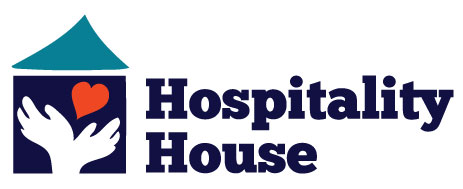 I debated writing this column, but as Hospitality House and the rest of the world surpass one year in a pandemic, I knew I had to shake off the possibility of jinxing our continued success to share why this one-year milestone has been so impactful and how our achievement is the result of many, unwavering community-wide efforts. For a host of reasons, our community is special. Unlike larger counties, our small stature is our strength. We know our neighbors; we shop and support our local businesses; and, when someone needs help, we jump in. In our small but mighty community, we’re better together and that’s never been more evident than this past year.
I debated writing this column, but as Hospitality House and the rest of the world surpass one year in a pandemic, I knew I had to shake off the possibility of jinxing our continued success to share why this one-year milestone has been so impactful and how our achievement is the result of many, unwavering community-wide efforts. For a host of reasons, our community is special. Unlike larger counties, our small stature is our strength. We know our neighbors; we shop and support our local businesses; and, when someone needs help, we jump in. In our small but mighty community, we’re better together and that’s never been more evident than this past year.
As the executive director of Hospitality House, when news of COVID-19 first broke and we were bracing for what was to come, we knew preparation was key. It’s my responsibility to stay abreast of homeless-related issues, studies, housing shortages, best practices as well as findings related to COVID-19 and its direct correlation to those without a home. Statistically, it’s been well reported that homeless individuals are at greater risk than the general population for contracting and spreading COVID-19. For starters, people experiencing homelessness often have compromised immune systems due to preexisting health conditions that become exacerbated in the absence of adequate housing. This, coupled without regular access to nutritious foods, hygiene, sanitation, and health care, furthers the risk. Early into the pandemic, The National Law Center on Homelessness and Poverty concluded: “Homeless individuals infected by COVID-19 will be twice as likely to be hospitalized, two to four times as likely to require critical care, and two to three times more likely to die than the general population.” Despite our “can do” positive attitude at Hospitality House, our team looked not to IF an outbreak would occur, but rather WHEN. As they say, “plan for the worst and hope for the best.”
Not surprisingly, homeless shelters across the nation have seen outbreaks. San Francisco was home to one of the first shelters to experience the effects of COVID-19 with 67 percent of its homeless guests testing positive and one fatality last March, according to a report published in Oxford Academic Clinical Infectious Diseases. More recently, on Feb. 1, Marc Meulman, chief of operations for public health services at the Orange County Health Care Agency, stated 17 homeless shelters in Orange County had active COVID-19 outbreaks with 417 homeless persons testing positive and one death.
Thankfully, the outbreaks that we have heard about elsewhere in the state and nationally, have not been the reality here on our home turf. I’ll never forget waking up to a text message on March 17, 2020 from Mike Dent, Nevada County’s director of housing. He has a much longer title, but I hope he will forgive my truncated version. At that time, COVID was still very new to all with countless unknowns; so in that initial text, Mike wanted to err on the side of extreme caution. He let me know that the County had secured funding for motel rooms. The goal was to get those living on the street into shelter and to create greater social distancing for congregate homeless shelters like Utah’s Place. In a matter of hours, we moved ten of our most vulnerable and high-risk individuals and families into motels, and another ten the next day. Just like the Loma Prieta earthquake that struck the greater Bay Area on October 17, March 17 will forever be remembered to me as the day Utah’s Place transformed from an overnight emergency shelter into a 24/7 operation. While this effort increased Hospitality House and the Homeless Outreach and Medical Engagement (HOME) team’s ability to consistently serve more homeless people in safer sheltering conditions, it also brought on additional hurdles to address and stat. Specifically, it meant we needed more of everything – more food, more staff, more street support, more transportation, with the added challenge of also ensuring food delivery to scattered site motels.
In the days leading up to Governor Newsom’s very first shelter-in-place mandate on March 19, 2020, Hospitality House’s plans were already underway to lessen the likelihood of illness. Heeding the World Health Organization’s declaration on March 11, 2020 that COVID-19 was now a global pandemic, we had to act and act quickly. Our plan included recommendations set forth by the Centers for Disease Control and Prevention as well as additional safety precautions specific to our shelter as advised by Nevada County Public Health, including sanitizing the shelter with disinfectant frequently throughout the day, directing all persons in the shelter to frequently wash their hands with hot soapy water for 20 seconds, accepting urgently needed items for the shelter outside only (no inside access), sanitizing these items before utilization, and mandating social distancing of at least 6-feet. Working closely with Public Health and partner nonprofits with the HOME team, preventive measures on the streets and in camps were also taken, including reaching out to campers to give out free sanitation kits; educating homeless individuals on hygiene and prevention strategies; identifying individuals who may be symptomatic and directing them to appropriate treatment; and, utilizing motel vouchers for shelter and/or quarantine as needed. On top of this, Hospitality House suspended its volunteer program, and canceled its major spring benefit (Empty Bowl) and shelter tours. All of this was done before the shelter-in-place mandate on March 19.
So why share all of this? Because keeping our community safe is paramount to the heart and soul of Hospitality House. We’ve done our due diligence to stay ahead of the curve, but we haven’t done it alone. We have done it together – the County, the Cities, our nonprofit partners and steadfast volunteers and donors. Because of the community’s help, we were able to take an assertive stance against COVID-19—proactively identifying solutions to keep people as safe as possible and working together for the common good.
Hospitality House has always been the recipient of widespread and unwavering civic involvement. In the spirit of what we have come to know about our community – volunteers stepped up to deliver food; the Oaks Clubhouse at Lake Wildwood volunteered to cook meals until we could put additional staffing in place; local providers SPD Markets, BriarPatch Food Co-op, Grocery Outlet, Interfaith Food Ministries, Friar Tuck’s and the Nevada County Food Bank all jumped in to help with our increased food needs as well as our food group volunteers. While our volunteers couldn’t personally cook in our shelter anymore as a safety precaution, they nonetheless continued to do what they could by donating food and financial support. Donors also came forward to help with our expansion efforts—underwriting many of our realized costs to ensure there would be no lapses in services. Homemade masks and PPE poured in; crafts, painting supplies, and other activities were gifted to help keep our guests entertained during quarantine. I can’t say enough how much we appreciate all of this—on top of public health being a concern, people’s mental health was a major concern, too, and having available activities to boost morale was and remains significant.
In collaboration with the County, motel expansion efforts went even further this past year in partnership with FREED Center for Independent Living, Turning Point Providence Center, Communities Beyond Violence and Sierra Roots. Together, we ensured social distancing mandates could be more easily adhered and together, we helped more people. In total, Hospitality House served 639 locals in 2020; while a sobering number indeed for a small community like ours, I am also happy to share that 234 were transitioned back into homes of their own. Throughout it all, our Public Health department remained by our side, offering recommendations amid an ever-evolving landscape. Behavioral Health has been and continues to be available too, hosting regular Zoom conferences to keep all homeless service providers up to date on the latest information not only on transmission rates and vaccination tiers, but also on how people are handling the mental health aspects brought on by COVID-19.
Despite this amazing collaboration, to say that this past year has been challenging would be an understatement. But this is likely true for everyone and for different reasons. However, what makes Hospitality House’s situation somewhat unique is for nearly a year now, Hospitality House guests continue to be asked to shelter in place. Even as the rest of the world began to open back up, our Utah’s Place guests were asked to remain in quarantine lockdown, with some exceptions being granted for doctor’s appointments, work, mental health counseling, or related activities. We’ve continued to provide a high level of service, even after losing 300 loyal volunteers (and their absence is felt daily).
Throughout the year, we’ve continued to reevaluate our emergency action plans and ways to improve our services and safety. One need we identified was rapid access to COVID-19 testing and results. Some might recall at certain peaks this past year, testing results could take up to two weeks or longer. We needed to do better. I reached out to some of my Bay Area connections to see if we could get some additional assistance. Developments led to not only increased PPE for the shelter but also a testing lab in Menlo Park, known as Avellino Lab USA. This blossomed into an even-broader partnership including Western Sierra Medical Clinic. Within a week or two of contracting with Avellino Labs, Western Sierra Medical Clinic was helping to lead the effort, bringing in teams to visit the shelter twice a week to offer onsite testing. Avellino gave us the results we relied on within 24 to 48 hours. This partnership fast-tracked testing for new guests needing shelter and offered reassurance to those already sheltering in Utah’s Place that we were doing our best to keep the shelter as COVID-19 free as possible. Today, the onsite testing continues twice a week to all of our guests.
I’m relieved to tell you, that as of this article’s publication on March 20, 2021, not one guest in our shelter has tested positive. Not one. That means that as we (and by “we”, I mean the collective we) pass the one-year mark, we have successfully kept every single guest in our homeless shelter safe from the virus. Our success is the community’s success and the spirit of what it means to be a Nevada County resident.
Now that I’ve provided this report, I hope to maintain our continued success. The reality is: we are safe—we remain as prepared as possible for whatever comes next —and we will continue to serve alongside all of you. Should an outbreak occur, I know that we will continue to get through it … together.
We are a role model homeless services provider and we’re grateful to have supporters out there who value our work and who continue to further it every day to those who need it most. We aren’t perfect by any means, but as long as Nevada County residents need help, we will continue to provide housing and homeless solutions.
A condensed version of this story appeared in The Union on March 20, viewable here.
